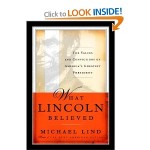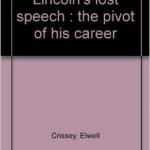 Abraham Lincoln once gave a speech that was so awe-inspiring that all the reporters there forgot to write it down. Sounds implausible, right? Ah, but it’s actually true. Elwell Crissey takes us back to May 29, 1856 with “Lincoln’s Lost Speech: The Pivot of His Career.” And despite the little problem of not having a record of the actual speech, Crissey does a great job enlivening the whole event surrounding its presentation.
Abraham Lincoln once gave a speech that was so awe-inspiring that all the reporters there forgot to write it down. Sounds implausible, right? Ah, but it’s actually true. Elwell Crissey takes us back to May 29, 1856 with “Lincoln’s Lost Speech: The Pivot of His Career.” And despite the little problem of not having a record of the actual speech, Crissey does a great job enlivening the whole event surrounding its presentation.
In 1856 Lincoln had been out of politics for several years following his one term as a US Congressman. He had made a comfortable law practice back in Springfield, Illinois, and it seemed his political career, once promising, had waned into a memory. And then came the Kansas-Nebraska Act. The Act, which was introduced by his old friend and rival Stephen A. Douglas and became law in 1854, effectively repealed the Missouri Compromise, thus opening up the west and north to the potential, and likely, spread of slavery. According to Lincoln, “the repeal of the Missouri Compromise aroused me again.”
And arouse him it did. Lincoln attended the convention in Bloomington, Illinois that started the Republican Party by pulling together old Whigs, Free Soilers, Abolitionists, Democrats and anyone else that found slavery to be abhorrent. At first calling themselves the Anti-Nebraska party, many politicians and other dignitaries stirred each other to action. At first not on the speaking schedule, friends cajoled Lincoln into speaking at 5:30 pm after the convention was officially closed. Expecting a light-hearted finish to the day, Lincoln surprised everyone with a powerful and passionate speech vehemently decrying slavery. According to all accounts, Lincoln startled the 1500 attendees by building up a fervent and animated chastisement of the Kansas-Nebraska act and warning that slavery must not be allowed to split the Union, and surely it would be split if slavery were to spread further into free territory. The usual adjectives applied to Lincoln…”silent” “taciturn” “reserved” “reticent”…were replaced by “blazing” “wrath” “maddened.”
Many of the attendees agreed on one line, “We will say to the Southern Disunionists, We won’t go out of the Union, and you SHAN’T,” offered passionately near the end of his 90-minute speech.
But that’s about all that everyone could agree on. Lincoln’s speech was so unexpected and so impassioned that everyone including the journalists were enthralled to the point of forgetting to take notes. So no verifiable record of his entire speech exists. One supposed verbatim transcription published 40 years later has been largely written off as fantasy. A few reports of the gist of the speech came from those who attended (which included the grandfather of the book’s author).
One thing on which all can agree is that the speech changed Lincoln’s life and helped vault the Republican Party from its nascent state into adulthood. It reinvigorated Lincoln’s political career – he received 110 votes on the first ballot to be the Vice-Presidential candidate just 2 months later. It helped leap him into contention for the Senate race against Stephen A. Douglas in 1858 and eventually, in 1860, the first Republican president of the United States.
Crissey’s book provides great insight into the state of the political debate over slavery during the decade leading up to the Civil War, and speculates as to what Lincoln actually said and the people who were present to hear him. The book dates back to 1967, but the writing is fluid and entertaining, and the information presented about this critical period in time is priceless.
David J. Kent is the author of Tesla: The Wizard of Electricity. You can order a signed copy directly from me, download the ebook at barnesandnoble.com, and find hard copies exclusively at Barnes and Noble bookstores. He is currently working on a book about Abraham Lincoln.
Follow me by subscribing by email on the home page. And feel free to “Like” my Facebook author’s page and connect on LinkedIn. Share with your friends using the buttons below.



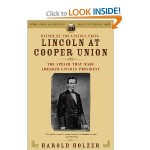 One would think the book’s subtitle “The speech that made Abraham Lincoln President,” would set up an unattainable expectation of greatness. After all, how could a book hold a candle to a great speech? Or perhaps the speech wasn’t so great after all and the author merely wanted to sell more books. And yet, I was wonderfully surprised to see that this really was an exceptional book about an exceptional speech.
One would think the book’s subtitle “The speech that made Abraham Lincoln President,” would set up an unattainable expectation of greatness. After all, how could a book hold a candle to a great speech? Or perhaps the speech wasn’t so great after all and the author merely wanted to sell more books. And yet, I was wonderfully surprised to see that this really was an exceptional book about an exceptional speech.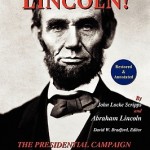 Vote Lincoln! The Presidential Campaign Biography of Abraham Lincoln is a 2010 annotated version of the first full biography of Abraham Lincoln published in 1860. Ostensibly written by John Locke Scripps, publisher of what would become the Chicago Tribune, much of the text was actually ghost written by Abraham Lincoln himself. Intended as a campaign biography, the book provides a revealing look at how Lincoln viewed his own life to that point.
Vote Lincoln! The Presidential Campaign Biography of Abraham Lincoln is a 2010 annotated version of the first full biography of Abraham Lincoln published in 1860. Ostensibly written by John Locke Scripps, publisher of what would become the Chicago Tribune, much of the text was actually ghost written by Abraham Lincoln himself. Intended as a campaign biography, the book provides a revealing look at how Lincoln viewed his own life to that point.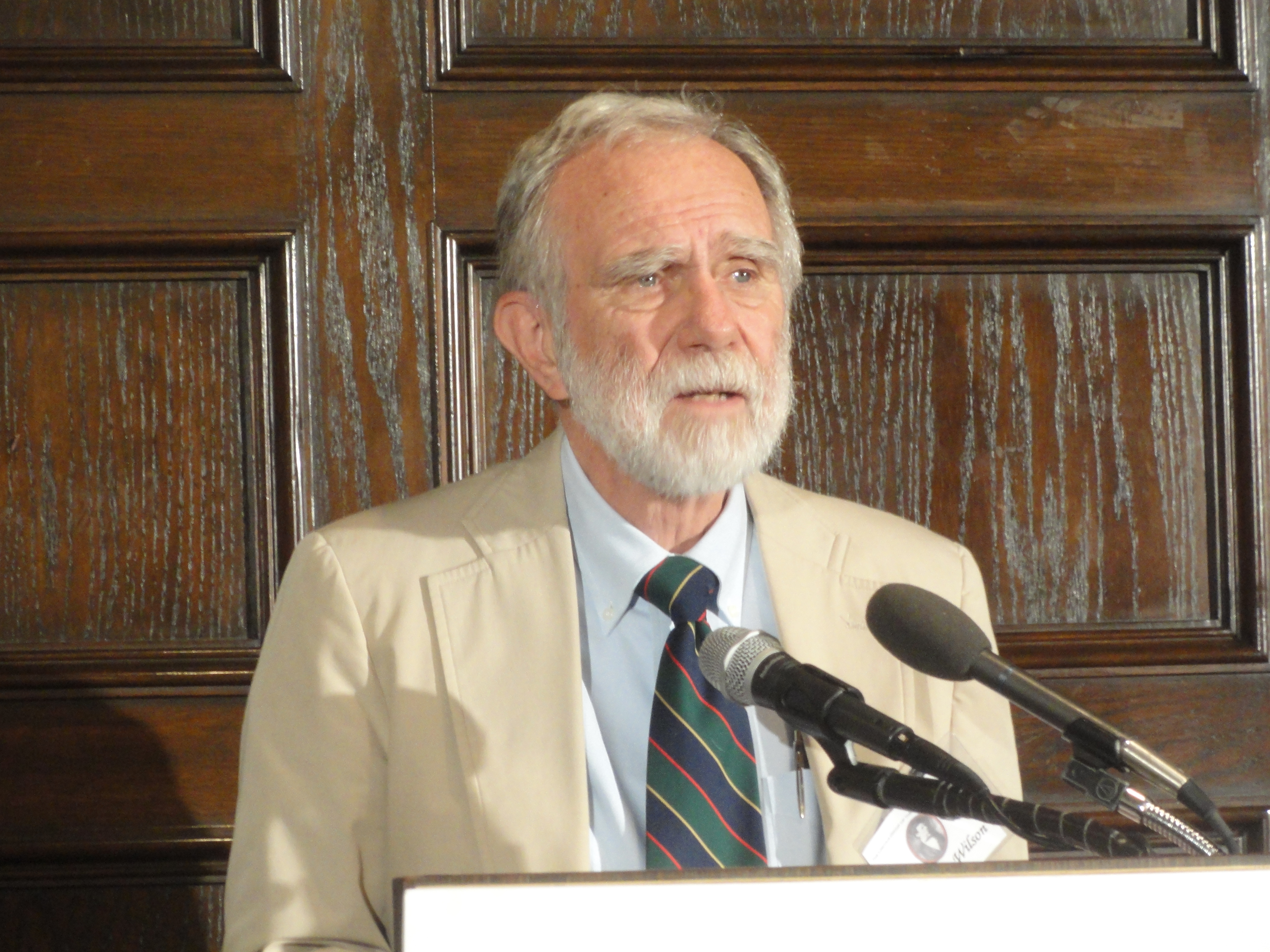
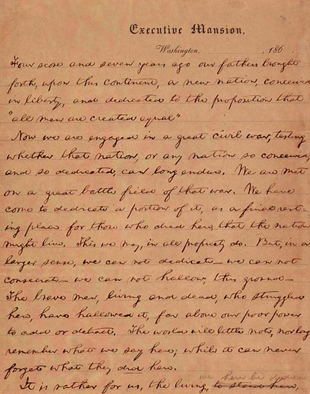
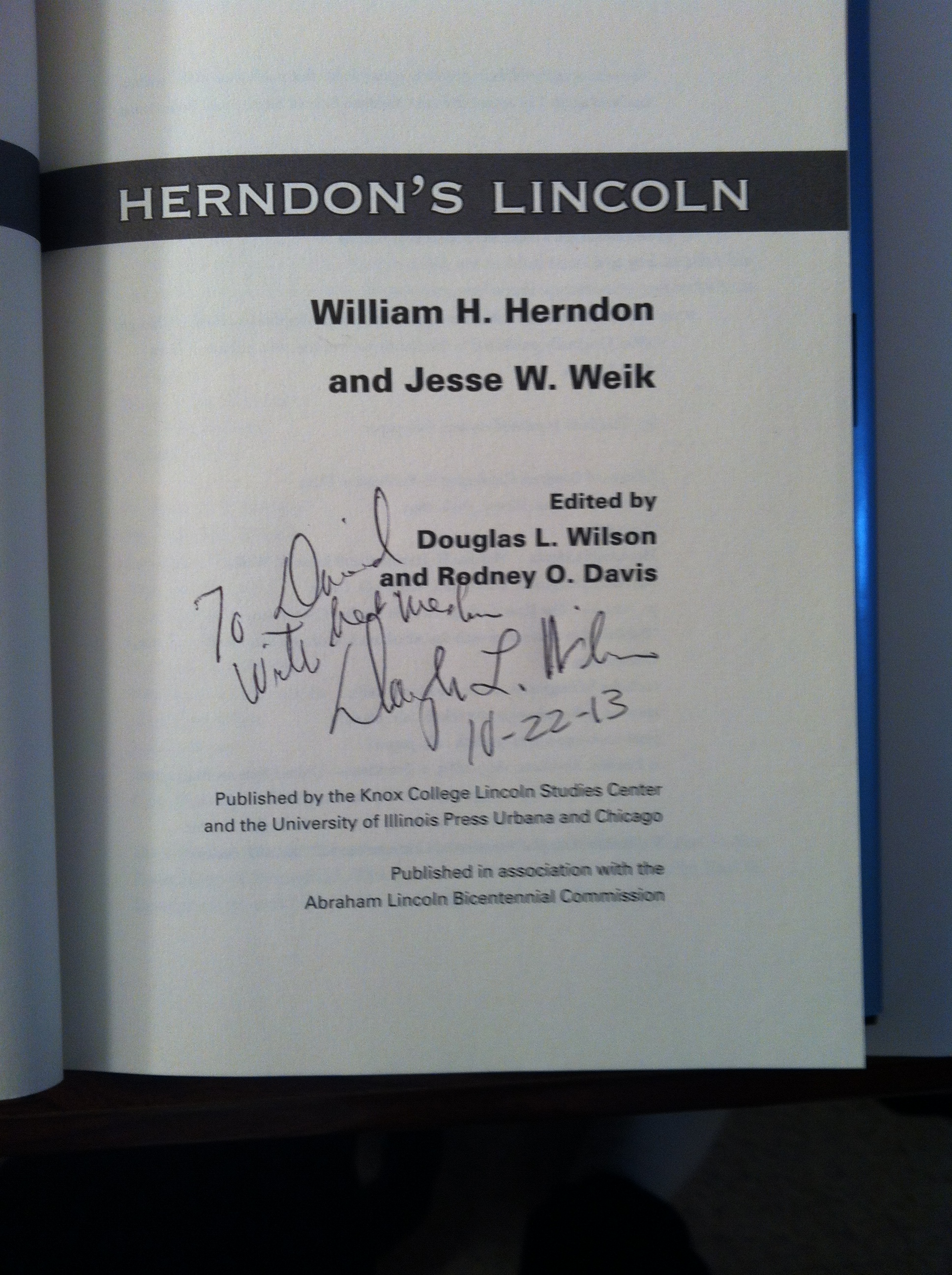
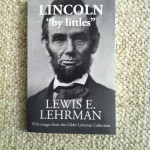 Periodically on this site I provide reviews of books about Abraham Lincoln. This is a review of Lincoln “by littles” by Lewis E. Lehrman, published by The Lehrman Institute in 2013.
Periodically on this site I provide reviews of books about Abraham Lincoln. This is a review of Lincoln “by littles” by Lewis E. Lehrman, published by The Lehrman Institute in 2013.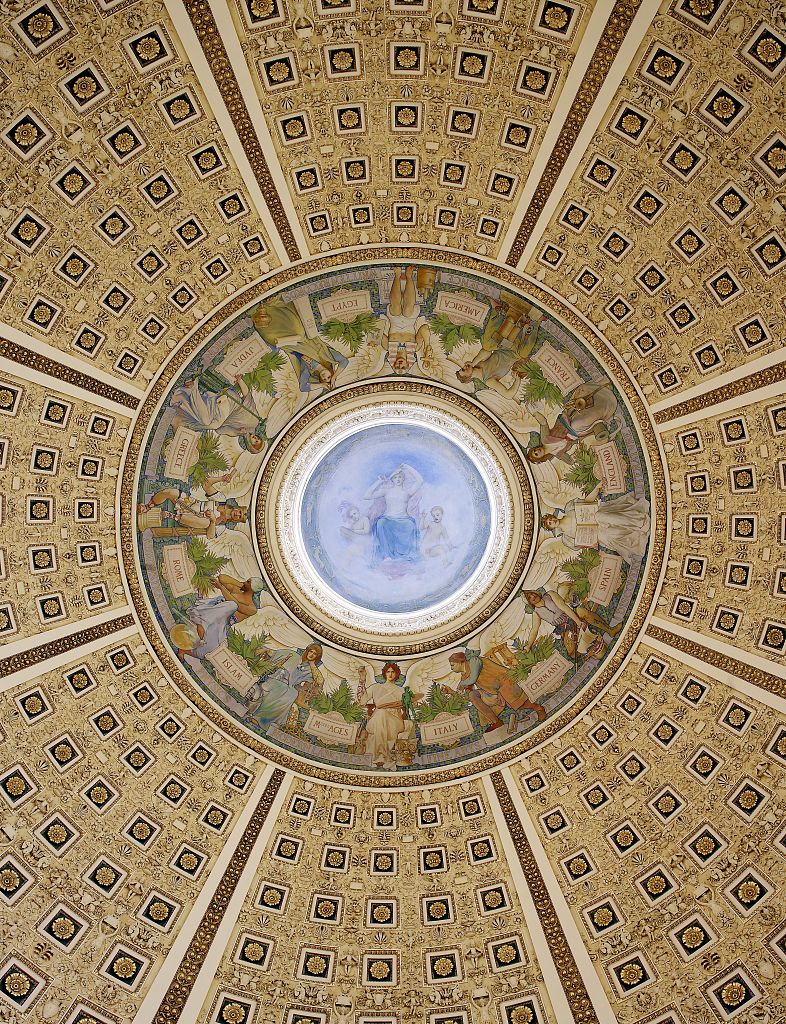

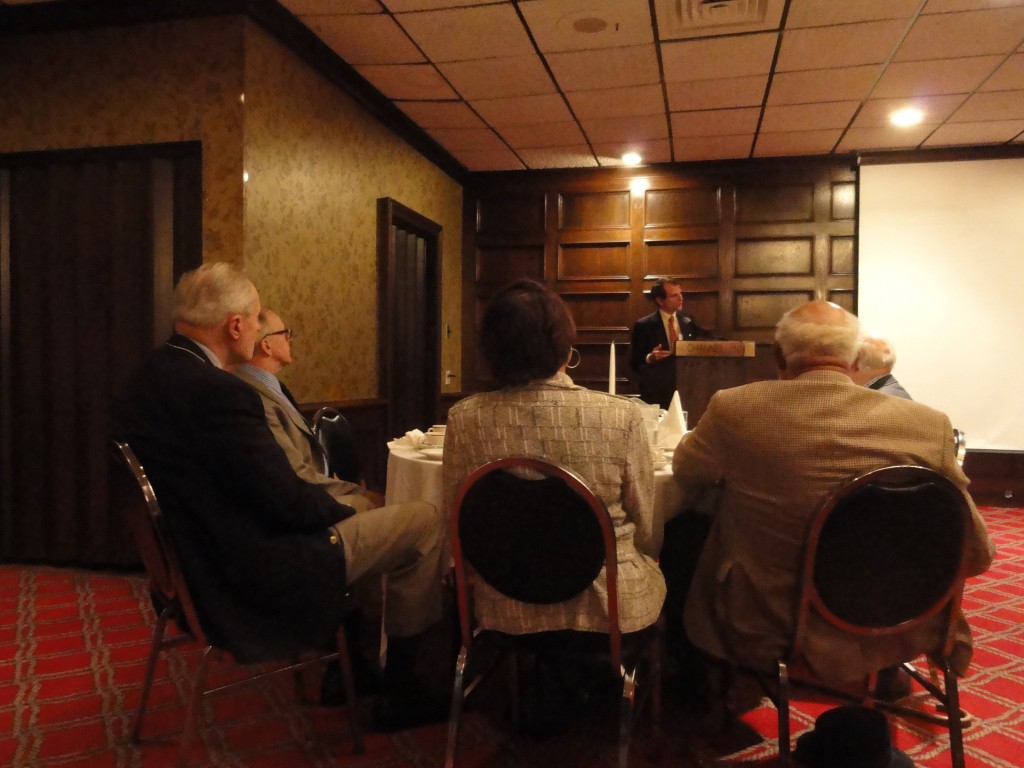
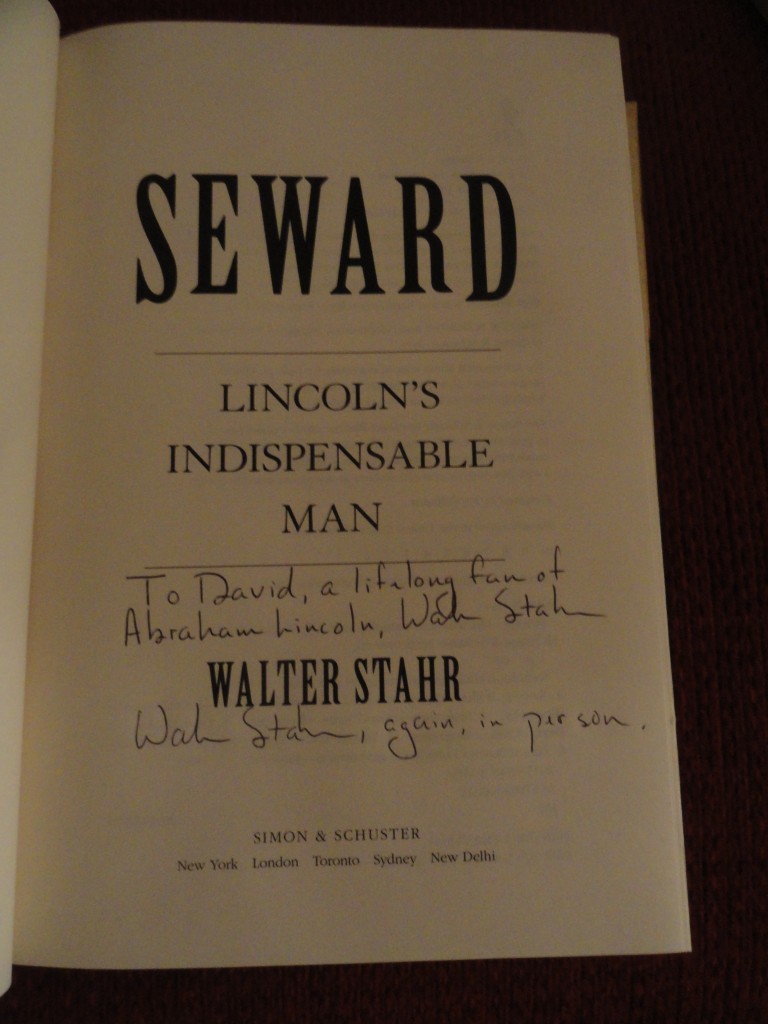
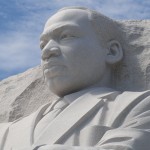 Barack Obama has said that the two people he admires most are Martin Luther King and Abraham Lincoln. Perhaps this shouldn’t be much of a surprise. In Dreams From My Father, Obama recounts his trials growing up as a young black man with mixed race heritage. While clearly a different upbringing than that of most black men living in America, he did experience the prejudices that were openly prevalent then, and more subtle and covert today.
Barack Obama has said that the two people he admires most are Martin Luther King and Abraham Lincoln. Perhaps this shouldn’t be much of a surprise. In Dreams From My Father, Obama recounts his trials growing up as a young black man with mixed race heritage. While clearly a different upbringing than that of most black men living in America, he did experience the prejudices that were openly prevalent then, and more subtle and covert today.